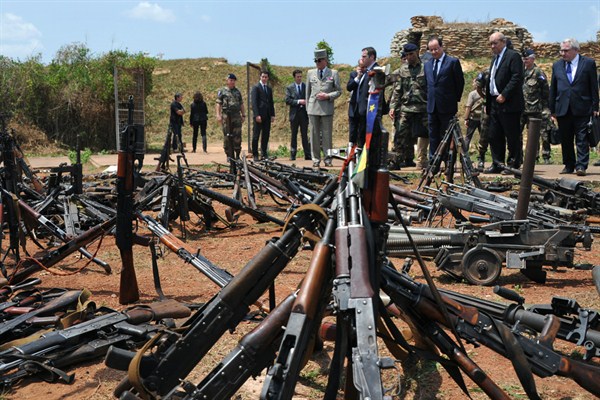Despite a cease-fire in July and a United Nations mission in September that raised hopes of restoring order, the crisis in the Central African Republic (CAR) flared up again last month. The conflict originated with the rise of the Seleka, a predominantly Muslim insurgency that launched in December 2012 and overthrew CAR’s President Francois Bozize in March 2013, a decade after Bozize took power in a military coup. After presiding over mass violence and internal displacement, Seleka leader Michel Djotodia was forced to resign from the presidency in January 2014 at a regional summit in Chad. But interim President Catherine Samba-Panza has been unable to stem the bloodshed between the Seleka and the mostly Christian anti-Balaka militias that have arisen in response.
In October, French and U.N. peacekeepers clashed with the Seleka, resulting in a number of casualties. This week, the European Union extended its mission in CAR at the request of the government in Bangui and the U.N. Security Council. Yesterday, Seleka rebels blocked two highways and exchanged gunfire with peacekeepers in Bangui, before returning to their camps today under U.N. pressure.
International human rights groups have repeatedly warned that the conflict in CAR risks developing into genocide, although a U.N. report in June disputed this characterization. Louisa Lombard, an anthropologist at Yale University and an expert on CAR, downplayed the religious dimension to the violence in The New York Times in April. “None of these tensions are over religion in an ideological sense,” she wrote. “Rather, the chaos of war and its simplifying/mobilizing slogans has provided cover for attacks that stem from diverse, often localized, social tensions.”

